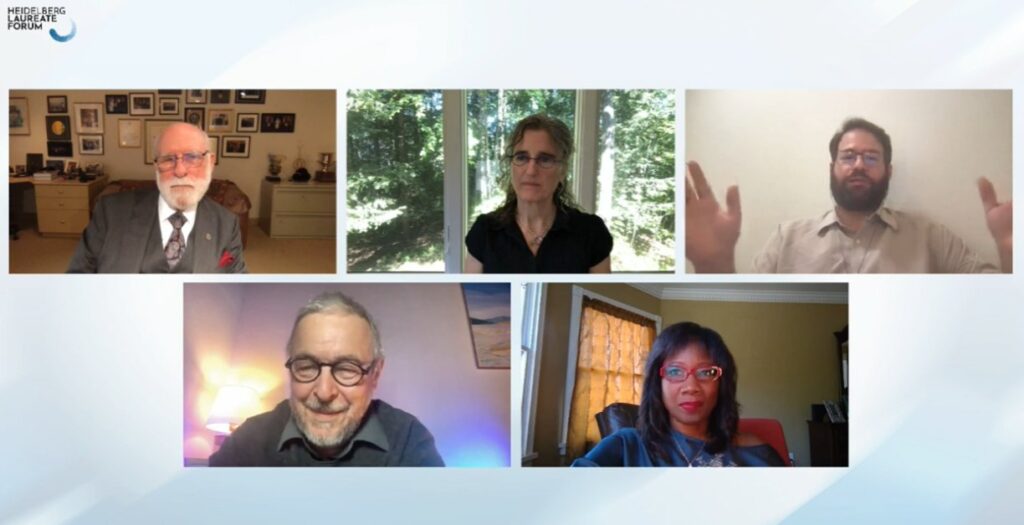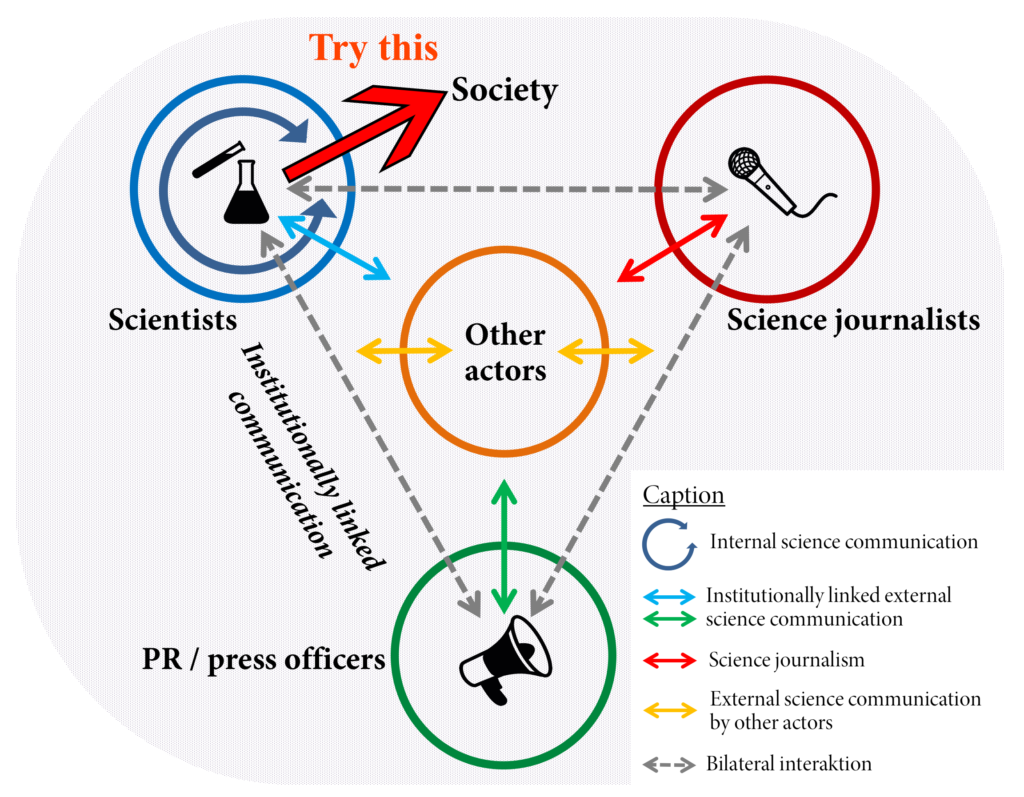Why scientists should engage the public – and how to get started
BLOG: Heidelberg Laureate Forum

“Science is not absolute. It’s just the best approximation we have of how the universe works,” says Vint Cerf, ACM A.M. Turing Award laureate and Chief Internet Evangelist at Google, at the #HLF21. “It’s always changing, and if today’s science contradicts yesterday’s, that’s a good thing.”
With the pandemic, polarization, social media, and everything that’s going on in the world right now, it’s probably never been as important to communicate science clearly and effectively. Of course, science communicators and journalists can help with that – but having scientists communicate directly to the public can play an important role.
Whether it’s through social media, op-eds, public talks, or anything else, there are many ways for scientists to address the public directly. In a session hosted by Susan D’Agostino, a panel discussed not only why it’s important for scientists to do so, but also how this can be rewarding on a personal and professional level.

Why do it
From vaccine hesitancy to climate change denial, we’ve had no shortage of unscientific ideas shaping public discourse – and it’s important to tackle them head-on. But as all academics will be happy to tell you, they already have a ton of work to do; so why bother with communicating directly to the public?
Take a moment to recall the last scientific paper you read. Even ignoring the paywall issues, what are the odds the general public can read and make sense of the paper? Probably astronomically low. Sure, there are science publications and general newspapers but as any journalist will tell you, there’s just not enough time to cover everything. Having more voices in the mix (especially knowledgeable voices) can only be a welcome addition.
It’s true that it’s not what we’re taught in grad school, says Talithia Williams, Associate professor of mathematics at Harvey Mudd College. But communicating directly to the public (as opposed to a science journal) can be much more impactful, she adds.
“The simpler I explain things, the more people gravitate towards it,” Williams says in the same panel. “It can be a distraction, but the visibility and the way you reach people and affect public discourse is so much more than any publication.” The simple pleasure of making the world a better place is a big motivator, Williams adds.
“I always wanted people to understand the beauty of mathematics; and also how much it affects our daily lives,” says Talithia Williams.
Science communication can help get more people into science and address the lack of diversity that’s still prevalent in many fields of science. Williams recalls that growing up, she didn’t see many black women mathematicians around and hopes to change that through her actions.

There’s also some personal satisfaction that comes with sharing your knowledge.
“I just want people to understand, it’s exciting to me,” says Vint Cerf. “The idea that you can convey something that’s in your head into someone else’s head, that’s amazing.”
How to start engaging the public
So how do you get started? The best thing to do, says Mathematics professor at the Technical University of Munich Jürgen Richter-Gebert, is to find stories you personally like. Whether it’s your own research, something related, or just a topic you’re passionate about, that’s where you should get started.
So finding a topic (or even better, a story) is a great way to start. It can be pretty much anything. Richter-Gebert himself held a TED talk that blended mathematics with music and did a great job at showcasing how the two seemingly unrelated fields actually have a lot in common.
Then, you need a channel – and Quanta editor Bill Andrews knows a thing or two about that. As you gather a bit of experience, and through some trial and error, you can figure out what works best for you and what doesn’t – and if nothing does, that’s perfectly fine as well. But to get started with, all you need to do is write down your thoughts in whatever form, on whatever channel.
Whether it’s social media, video, or just an old-fashioned blog, the best way to get started is just to do it.
Mastering the craft
Of course, there’s no simple and straightforward way of honing your science communication skills. But the good news is, you’re already halfway there. As a scientist, you’ve got the knowledge part down, all you need to do is work on your communication – and this is where you need to pay attention.
Your research peers may know what ‘stochastic’ is or what’s the difference between supervised and unsupervised machine learning, but that doesn’t fly with the general public.
There’s an important lesson that Andrews emphasized: you should always keep your audience in mind. Who are you writing this for? If it’s a crowd of mathematicians, then you may not need to get rid of all the lingo; but if it’s a general audience, you’ll want to tune it down and explain everything in a way that’s easy to understand and follow.

A good way to figure out what works and what doesn’t is to read a lot, D’Agostino tells me.
“Read widely to get a sense of what you think successful public science journalism looks like. Then try to emulate that. Talk with others who are interested in writing about science and consider forming a science writers’ group. Then just start writing.”
Metaphors can also be a useful tool, the whole panel agrees. They’re powerful and they can help convey complex, abstract ideas with things that may relate and resonate with your readers’ experience. You always want to relate to people’s experiences, but you don’t want to oversimplify and oversell the story, otherwise, it just loses credibility. It’s tempting, the panelists say, but it’s wrong.
All this may sound a bit daunting, but science communication can be very rewarding and enjoyable, and you have a very important ally in it: human nature itself. Deep down, we’re all curious, and we all want to learn things and share them with the world.
“Science is for everybody, it always is. Look at a 3-year-old or 5-year old, they’re all scientists, we just beat it out of them with bad education practice. Everyone can be a scientist if we just let them,” Cerf concludes.
There’s probably never been a better time to get engaged and creative with science communication. Is this something that you’ve ever done or would consider doing?


Encourage scientists to see societal problems through a math / numerical lens
Social disputes about e.g. measures against Covid-19 or climate change and decarbonization are often discussed on an emotional and symbolic level, where wishful thinking and thinking about individual freedom, justice and rights dominate. But reality and the physical world do not behave according to human wishes. The worldwide distribution of Sars-CoV-2 or methods of energy generation mostly follows physical-mathematical rules. In order to understand and master this, one has to know physics / mathematics.
In my opinion, scientists should bring mathematics and numerical reasoning into political discourse to enable the public to think in terms, in levers that lead to success. An example of this can be found in the article ENGINEERS: YOU CAN DISRUPT CLIMATE CHANGE, where you can find the section Disrupting climate change is a math problem
And yes, I think even a lot of social problems are math problems in the end.